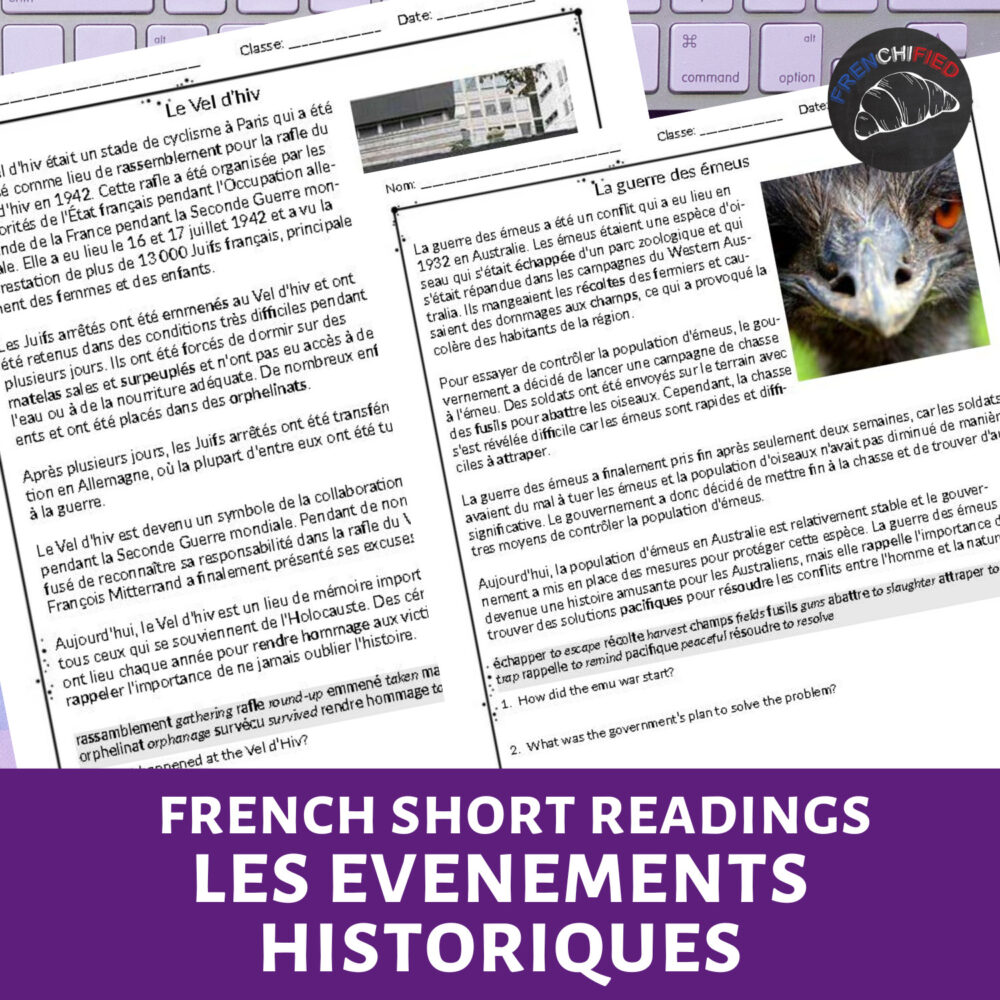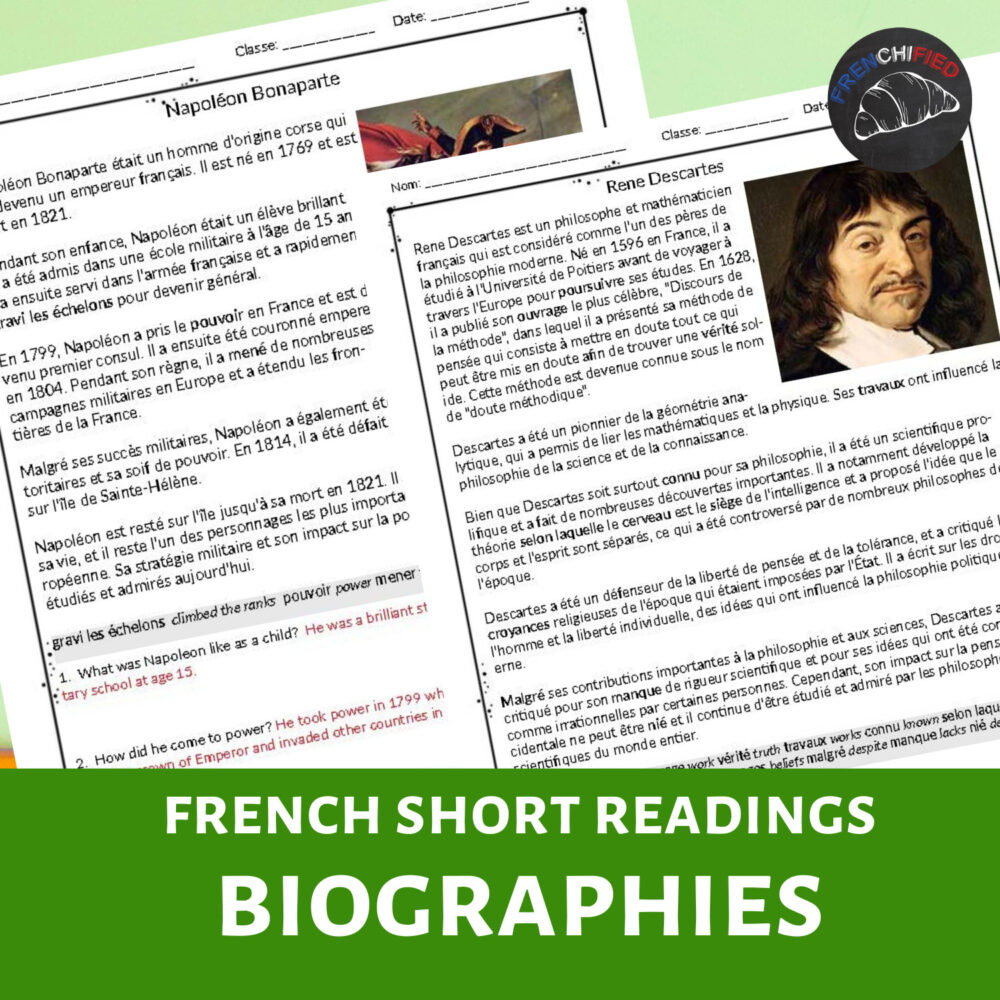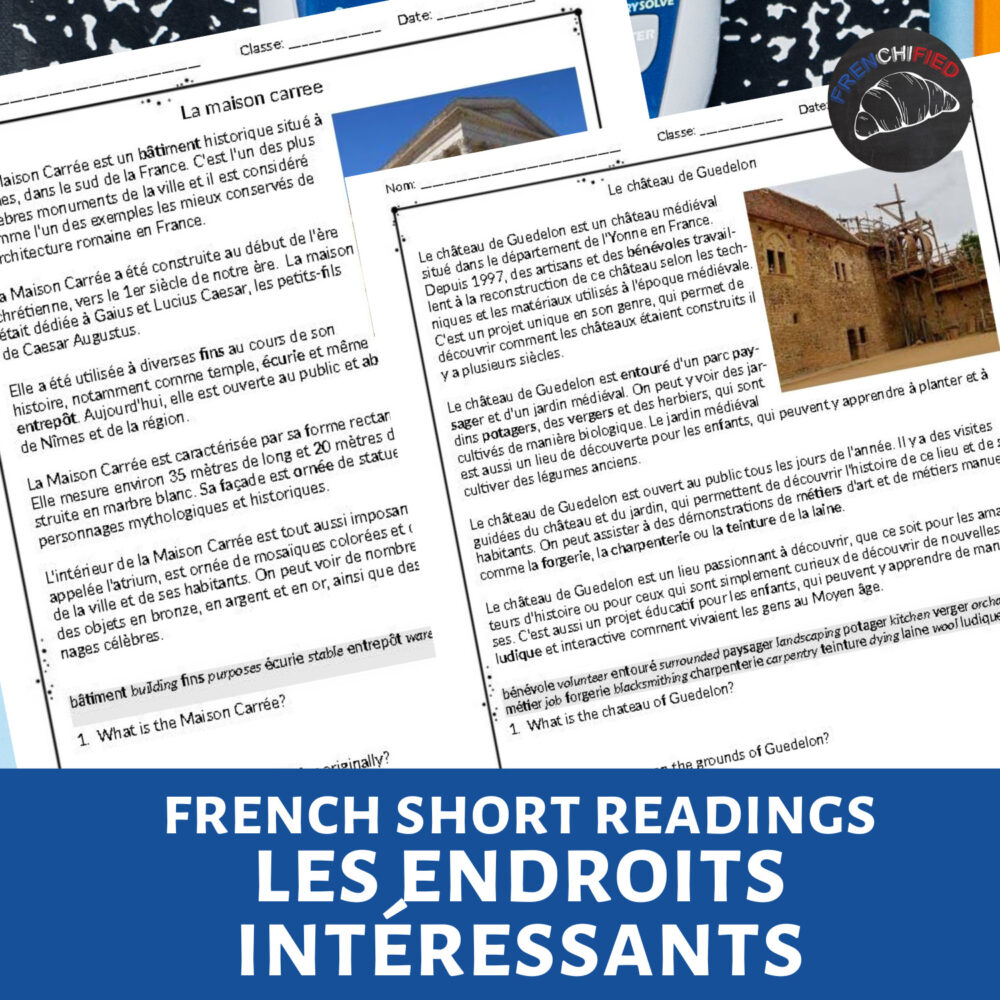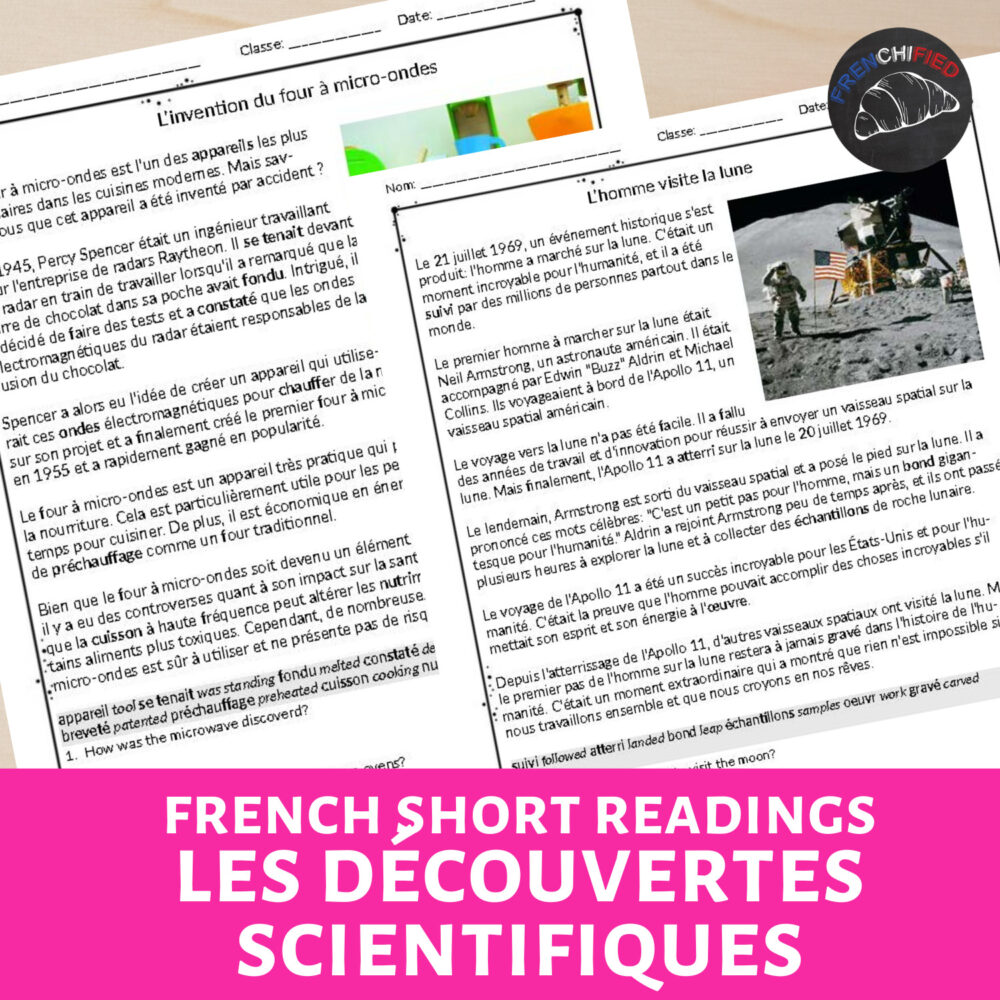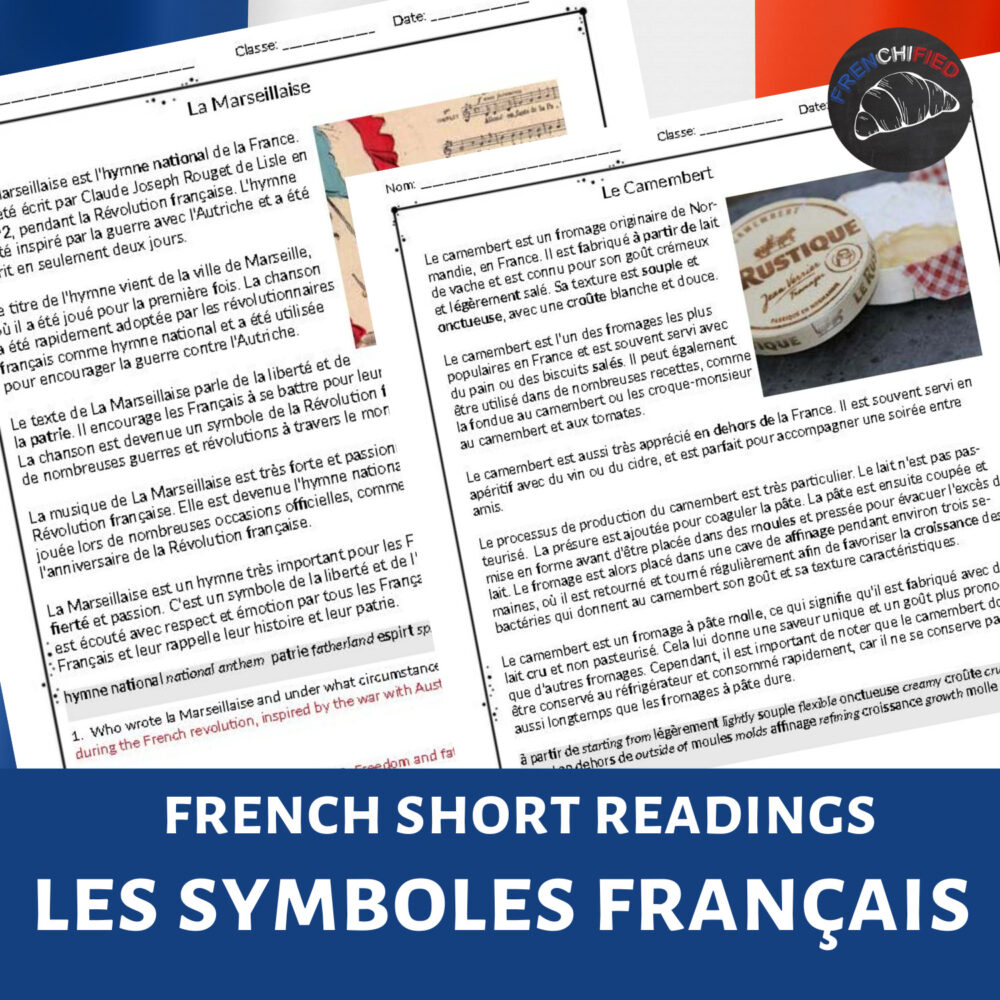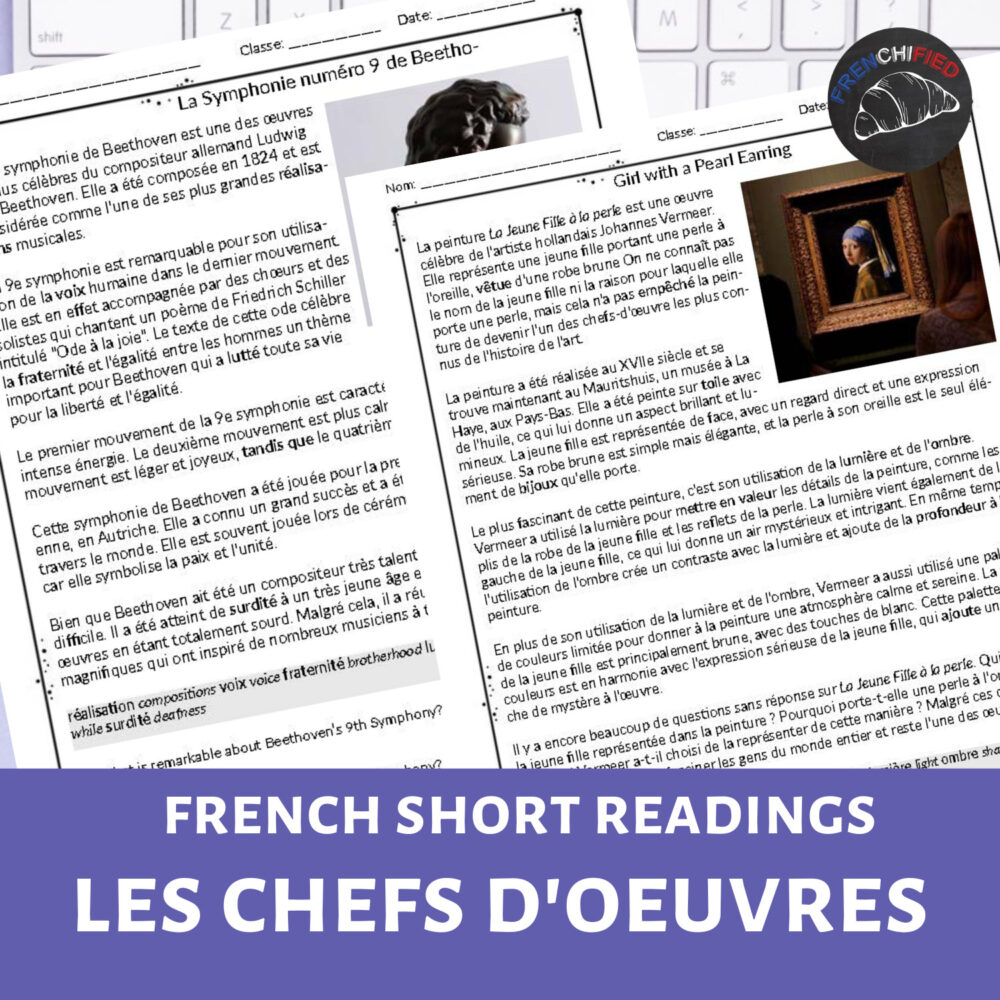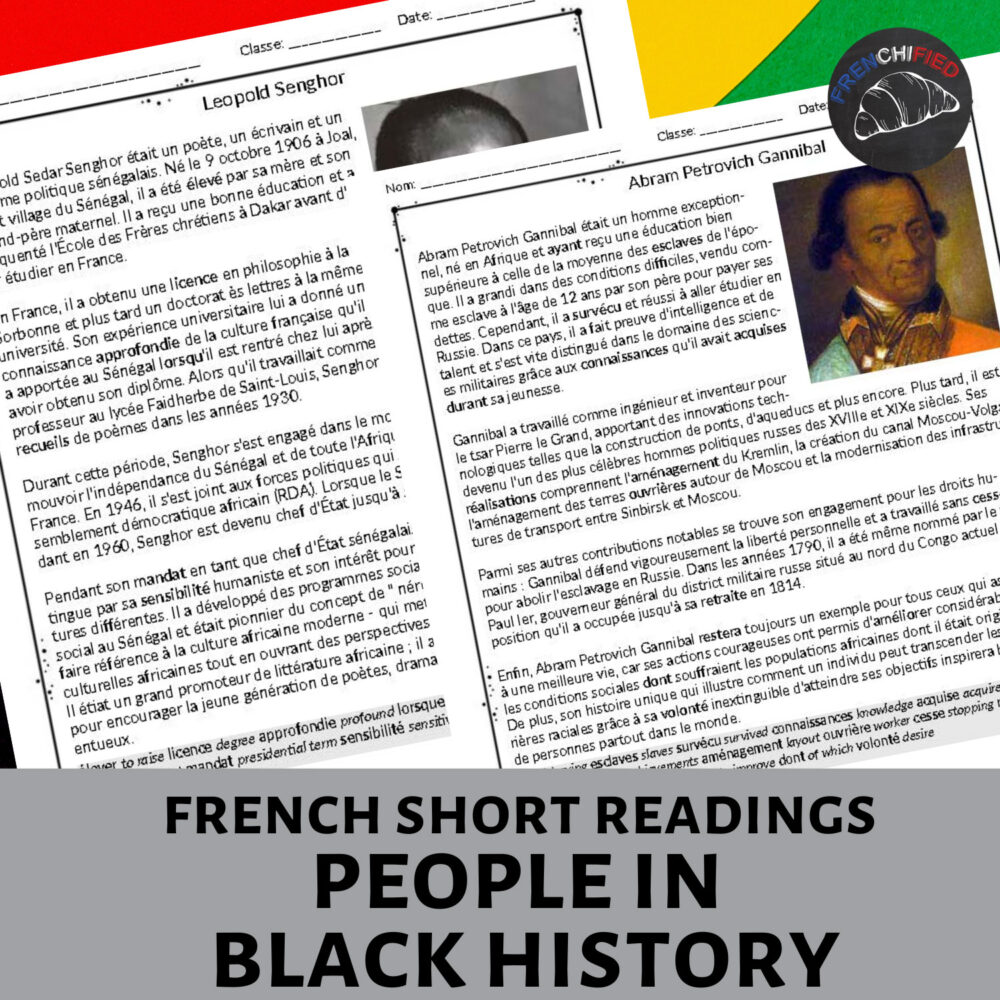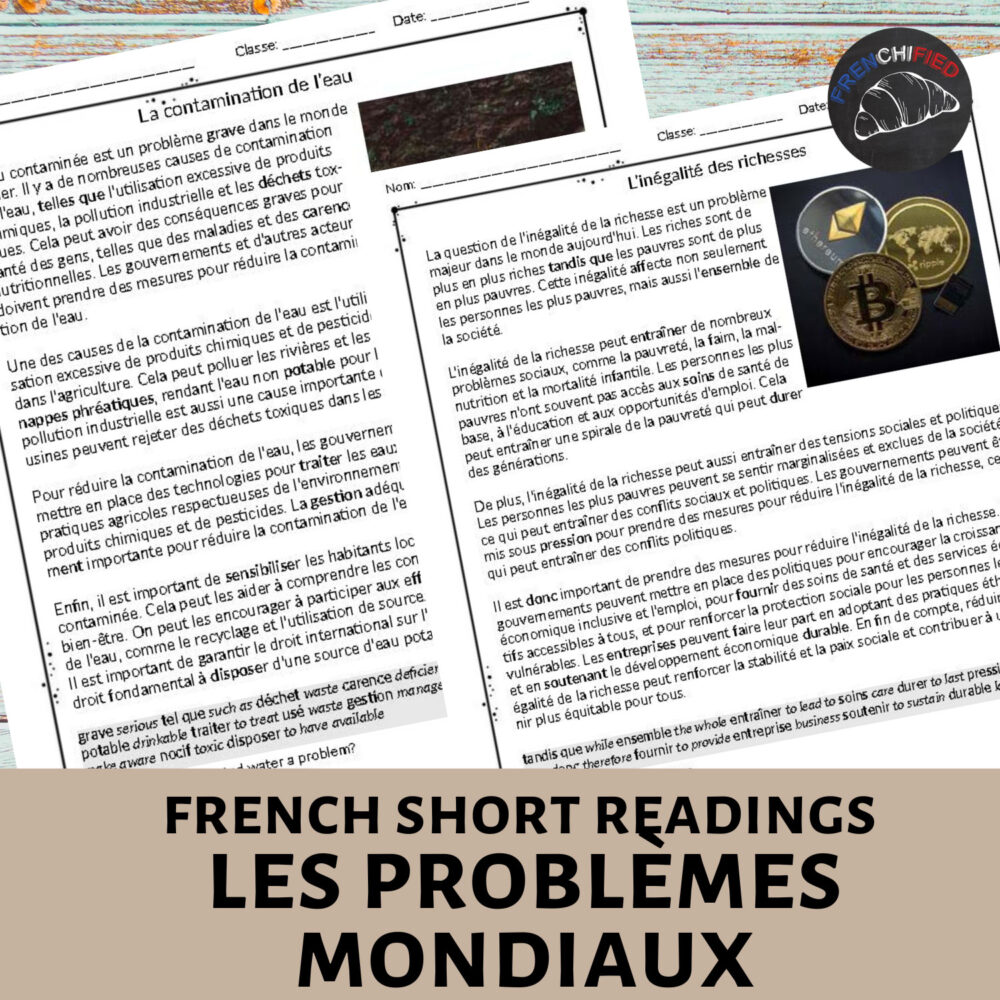TPT products
200 Interesting short French readings to make the leap from novice-high to intermediate-low
Table of Contents
One thing that many French teachers notice is that the jump from ACTFL level novice-high to intermediate-low can be a big one. With this in mind, I’ve written a series of short French readings specifically to help with this jump. I’ve finally finished the last batch and there are enough to do one every single day of the school year, if you wish to do so!
These short French readings are focused on adding to students’ growing vocabulary as well as exposing them to more complex structures and grammar. At the novice-high level, students are quite comfortable using the language to discuss things that are familiar to them. It’s easy to find readings at this level. But to get to the intermediate-low level, they will need to be able to negotiate texts about subjects that may not be familiar at all. This means vocabulary that isn’t found in everyday life as well as more complex sentences with connecting words and phrases.
I’ve written 200 different short French readings, sold either in groups of 10 by theme, or in bundles of 50. They can be used for bell work, reading practice assignments, or as prompts for class discussion. There really isn’t a specific order that they need to be read in – you can work through each theme, or mix them up. Each reading has a glossary of words that are likely to be unfamiliar, and none of the readings assume prior knowledge of the words or phrases that are new (so you can read them out of order).
Topics of the short French readings
Short French readings Bundle 1:
French authors – Learn about the careers and lives of some of the most important authors in French literary history.
Holidays and festivals around the world – Learn about the different holidays and festivals around the world. These aren’t just your typical events, but includes both well-known festivals like la Tomatina in Spain and the Fête de la Musique in France, as well as some quirky festivals like the Wilhelmina Ice Pole sitting contest and the Baby-Jumping festival.
Incredible places – Learn about some of the most incredible places on earth – Bora Bora, the city of Petra, the Grand Canyon and more. Your students will want to learn about some of the places they may have seen on Instagram, and could even find themselves adding to their bucket lists after reading these.
Historical events – some of the biggest events in human history are included (the Renaissance, the French Revolution, the invention of the printing press) but also some that your students probably haven’t heard of (the Tunguska event and the Emu war, anyone?).
Women’s biographies – The women in these readings will probably be new to your students, but all of them accomplished something that made them famous – or infamous! From the author George Sand to holocaust survivor and political leader Simone Veil, each of these women is worth knowing about.
Short French readings Bundle 2:
Biographies – Some of the most famous people are in this batch (Napoleon, Julius Caesar, Charlemagne) but also some your students may not have heard of (Vercingetorix, Jacques Cousteau, Surya Bonaly). Each has accomplished something worth learning about.
Interesting places – This set includes reading about places in France that don’t get a lot of attention. Forget the Eiffel Tower, instead read about the Camargue and its wild horses, the modern castle being built in the medieval way and the dog cemetery in Paris.
Scientific discoveries – Learn about some of the most important scientific achievements in the world – the moon landing, the discovery of penicillin and more. Also includes some life-changing discoveries that your students take for granted – the micro-wave oven, the invention of plastic and AI.
Animals – every one of these animals is interesting and some are probably not familiar to your students at all – the hyrax, fossa and tanuki. Learn about the duckbill platypus and the maned wolf and develop an appreciation for some lesser-known species.
Symbols of France – Learn about the history of some of France’s best-known symbols such as the tricolor flag, the fleur-de-lis and Marianne. But what about the baguette, champagne and Camembert? While not official symbols of France, they are everywhere – including in this group of readings!
Short French readings Bundle 3:
Diseases – Learn about the diseases that changed the course of human history – smallpox, malaria, AIDS, cholera, cancer. Also includes a reading about the genetic disease of progeria, which causes children to age very rapidly.
World religions – learn about the history and practices of the world’s major religions (Hinduism, Buddhism, Islam, Christianiaty, Judaism) as well as some lesser-known ones like Zoroastrianism and Voodoo.
Interesting mysteries – This one was one of my favorites to work on because these stories are so crazy! Some of the mysteries have been solved (Gloria Ramirez and the toxic blobs) while others are still mysteries – What happened to Jimmy Hoffa? Where is the Amber Room? And what happened to the men who escaped from Alcatraz?
Artistic masterpieces – these readings are divided in focus. 5 readings about musical compositions that your students have probably heard such as Beethoven’s symphony #9 and the Four Seasons and 5 readings about paintings that they’ve undoubtedly seen such as The Scream and Girl with a Pearl Earring.
Disasters in history – learn about some of the biggest disasters in world history. Some of them have changed the world by leading to regulations to make us safer, while we still haven’t learned our lesson from others – the AIDS epidemic, the sinking of the Titanic, the Banqiau Dam failure and 7 others.
Short French readings Bundle 4:
Foods – Learn about the history of some of the most popular foods in the world: pizza, sandwiches, French fires, Buffalo wings and…Jello!
Black history biographies – Some of these people will already by familiar to your students (Kobe Bryant, Trevor Noah) but others are likely to be completely unknown (Yasuke, Blanche Bruce, Abram Petrovich Gannibal). Each has had an impact on history that makes them worth learning about.
Panics and trends – As the quote from Men in Black says, “a person is smart -“A person is smart. People are dumb, panicky dangerous animals and you know it.” This set of readings addresses some of the panics (Salem with trials, Pokemon, satanic panic) and trends (tulip mania, meowing nuns, lotus shoes) that people have fallen into despite there being no good reason to do so.
Global problems – this set addresses some of the big problems facing us today and potential solutions. Learn about biodiversity loss, global poverty, religious violence, hunger and more.
How it works – How does it work? Find out in these readings – scuba, airplanes, mummification, dentistry, Orbeez and more. Learn about the history or discovery of some of the things we use every day.
If you’d like to get an idea of what the reading level and style of these short French readings are, you can get a free reading about the history of vampires here.







